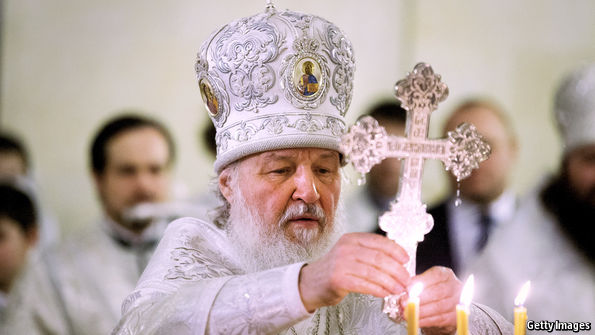A Catholic-Orthodox meeting is spectacular but not unprecedented
Popes and patriarchs

Feb 7th 2016, 10:05 by ERASMUS
THE announcement of a meeting between Pope Francis and Patriarch Kirill of Moscow, due to take place in Cuba on February 12th, is certainly a spectacular moment in inter-church diplomacy. But contrary to many reports that have appeared in the press this weekend, it is certainly not the first top-level encounter between the Roman Catholic and Orthodox churches since the East-West schism of 1054.
Before speculating about what will happen in Havana, it's worth recalling, in barest outline, some landmarks in the history of this often tortured relationship. The rupture of 1054 was between Rome and the Patriarchate of Constantinople, modern Istanbul, an ancient see whose incumbent is still considered the "first among equals" among the prelates of the Orthodox Christian world. (The exact nature of Constantinople's primacy often triggers arguments, but not the primacy itself.) If there were a breakthrough moment in the relationship between those two institutions, it would have been the encounter in Jerusalem in 1964 between Pope Paul and Patriarch Athenagoras of Constantinople. Without claiming to have settled any doctrinal differences, they agreed to set aside their ancient "anathemas" or mutual denunciations.
Patriarch Kirill of Moscow is, of course, a very important figure, both in global Christianity and in Russian affairs. But for church history buffs, he and his institution are new kids on the block. Pope Francis is reckoned to be the 266th holder of his office, and the current Patriarch of Constantinople, Bartholomew, is 270th in line. Kirill is only the 16th Patriarch of Moscow.
How come there have been so few? The see of Moscow traces its spiritual roots to the baptism of the Slavic peoples in the year 988; but only in 1589 was Moscow recognised as a full-blown Patriarchate, the highest level of independence for an Orthodox church. It's interesting to note that although it was created under Constantinople's spiritual authority, the Slavic church, initially based in Kiev, did not instantly break ties with Rome in response to the 1054 bust-up; news probably took a long time to travel in those days. So you could argue that Patriarch Kirill had some remote predecessors (in the sense of leaders of the Slavic Christians) who were in full communion with Rome.
http://www.economist.com/blogs/erasmus/2016/02/popes-and-patriarchs
